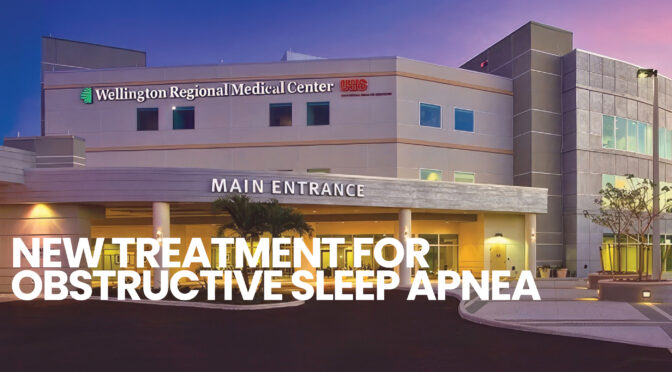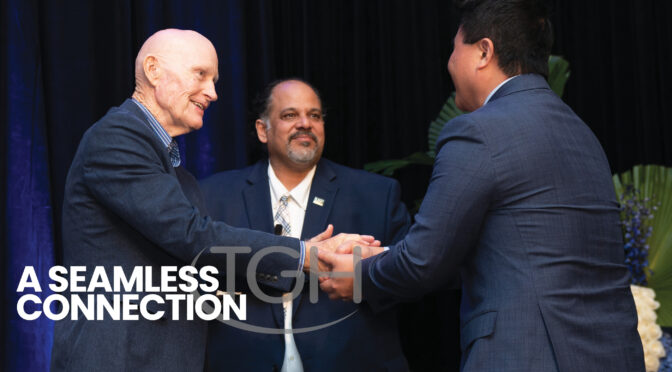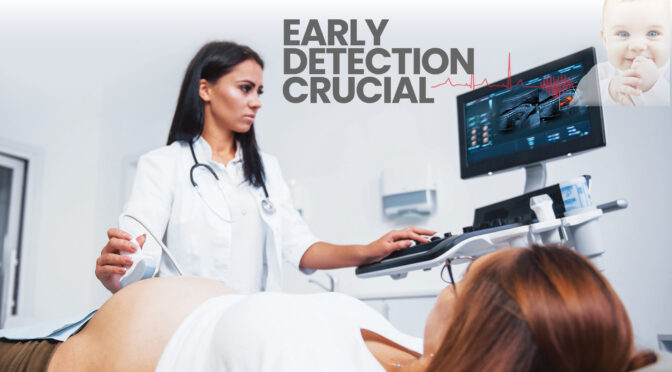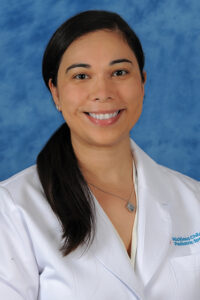Advanced Breast Center At WRMC Offers Top-Quality Treatment Services Close To Home
Story by Shannon Anastasio | Photos by Frank Koester and courtesy Wellington Regional Medical Center
The Advanced Breast Center at Wellington Regional Medical Center was recently recognized as a certified participant in the National Quality Measures for Breast Centers (NQMBC) program for the second year in a row. This distinguished honor represents a commitment to provide the highest level of quality breast healthcare to patients in the community.
“This certification is a testament to the dedication and hard work of our team,” WRMC CEO Pam Tahan said. “We are committed to providing our patients with the highest quality care, and this recognition reinforces our efforts and the positive impact we are making in our community.”
Measuring and comparing quality performance is essential in assessing patient care and allocating resources where improvement is desired. In today’s dynamic healthcare industry, breast centers are faced with providing quality care while simultaneously keeping costs under control. A facility’s staff must not only be familiar with existing standards of care but must also be aware of new advances in technology. The Advanced Breast Center at WRMC has taken a major step to ensure they provide the best possible quality care to patients.
“Being recognized as a certified participant in the National Quality Measures for Breast Centers program is a significant accomplishment,” Tahan noted. “It reflects our ongoing commitment to excellence in breast healthcare and our dedication to adopting the latest advancements in medical technology and treatment protocols.”
The experience of Advanced Breast Center patient Mary Jane Poverstein illustrates the importance of having this vital resource in the community. She is a patient of Dr. Andrew Shapiro of Advanced Surgical Physicians on the WRMC campus. Shapiro works closely with the Advanced Breast Center.
Poverstein was recommended to Shapiro by her primary care physician, Dr. Emily Harrison, also located on the WRMC campus, after her annual mammogram showed breast calcification. Further testing determined that she had Stage 1 breast cancer, and she began outpatient radiation treatment.
“I highly recommend Dr. Shapiro’s capable staff, the technicians at the testing site, who were so caring when we found the test results, the nurses at the outpatient facility, and the amazing technicians at the GenesisCare radiation location at the hospital, who are so careful with my body as the radiation penetrates,” Poverstein said. “Dr. [Alicia] Gittleman and Dr. [Marilyn] Raymond explained what was going to happen as a result of the radiation, so there have been no surprises.”
While Poverstein’s mammogram showed a possible issue in her left breast, additional testing showed the cancer in her right breast. She credited Shapiro with the thorough examination that discovered the hidden problem.
“First, his magic fingers found my cancer that the original tests did not show,” she said. “Second, he was careful to test the left breast to determine no further left breast treatment was warranted. Third, his professionalism was genuine. I felt in good hands. He explained technical language and discussed options carefully. I trusted him to have my best interests.”
She is thankful for having such advanced breast services close to home.
“Learning you have cancer is a very scary experience,” Poverstein said. “Dr. Shapiro’s bedside manner and confidence in good results reassured me with every visit.”
The NQMBC program, launched in April 2005 and now used in 45 states, offers facilities providing breast healthcare with the ability to track and measure breast center performance in more than 40 individual quality indicators. The program has been validated by multiple peer reviewed medical journals.
The most compelling component of the program is the ability of participants to enter their data and immediately compare their performance with other participating centers across the country.
Centers may also compare themselves with centers like their own — their size, their location, the numbers of mammograms or cancers seen per year, as well as other variables. Participants use these comparison reports to identify where top-quality care already exists and where quality care improvement opportunities exist. NCBC facility membership allows participation in the NQMBC program without any additional cost.
The National Consortium of Breast Centers is proud to recognize WRMC’s Advanced Breast Center as a certified participant. The Advanced Breast Center will continue in its commitment to provide the highest quality care to its patients and work on keeping their certified level in NQMBC.
The National Quality Measures for Breast Centers were developed by referencing the Health Care Advisory Board’s Clinical Quality Dashboard for breast centers. The national quality measures reflect more than 11 years of work, culminating in the adoption of more than 33 national quality indicators.
The National Consortium of Breast Centers promotes excellence in breast healthcare for the general public through a network of diverse professionals dedicated to the active exchange of ideas and resources. It serves as an informational resource and provides support services to those rendering care to people with breast diseases through educational programs, newsletters, a national directory and patient forums. It encourages professionals to concentrate and specialize in activities related to breast disease, and encourages the development of programs and centers that address breast disease and promote breast health. It also facilitates collaborative research opportunities on issues of breast health. Learn more at www.nqmbc.org.
Wellington Regional Medical Center is a 235-bed, acute care hospital that has been providing high quality healthcare services to the residents of central Palm Beach County since 1986. As a community hospital, accredited by the Joint Commission, WRMC prides itself on its continued commitment to remain at the forefront of advanced technologies and expanding programs and services to meet the needs of the growing community it serves.
Visit www.wellingtonregional.com to learn more about Wellington Regional Medical Center.









 By Dr. Stephanie A. Acosta
By Dr. Stephanie A. Acosta